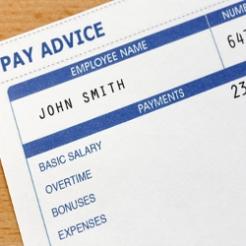Charities leading the charge on payroll giving reform and promotion have themselves a level of staff participation in the scheme barely above the national average, civilsociety.co.uk can reveal.
Payroll giving has long been bemoaned as failing to live up to its potential, with many in the charity sector believing that there is significant room for improvement on the current national average of 6 per cent take-up in the workplaces where it is available.
However, the Institute of Fundraising, which runs – backed by government – the National Payroll Giving Excellence Awards itself has 7 per cent of staff participating in payroll giving, just one percentage point above the low national average.
British Heart Foundation’s payroll giving manager and chair of the Institute’s Special Interest Group on Payroll Giving Jane Banks told civilsociety.co.uk that at the BHF staff take-up of the scheme is around 8 per cent. The charity is one of the largest recipients of payroll giving income, with income for 2010/11 at £671,000 from the mechanism.
Meanwhile Barnardo's, also one of the most successful charities in terms of receiving payroll giving income, has nearly 10 per cent of staff participating in some kind of giving from the payroll, according to Stephen Noble, head of workplace giving and corporate support at the charity, and vice-chair of the Institute’s SIG.
“Charities unfortunately suffer the same issues as companies,” said Noble. “Who takes responsibility [for payroll giving within an organisation]?”
Banks said: “In charities it’s seen as a fundraising mechanism, not an employee benefit.
“We have to promote and protect that form of fundraising, while at the same time ensure that our own house is in order.”
The Institute of Fundraising would – with 7 per cent participation – qualify for a ‘Silver’ Award of Excellence at its own awards. Any organisation which has a take-up of payroll giving the same as the national average would qualify for a 'silver award'. The lowest level of award, bronze, is available to organisations with take-up by just 1 per cent of staff.
Ceri Edwards, director of policy and communications at the Institute, said the organisation will be “going for gold this year” at the Awards, which were recently backed for a further two years by the Cabinet Office.
In 2011/12, payroll giving raised £118m for charities, although many believe this could be much, much higher.
Javid: MPs lobbied to use payroll giving
Banks and Noble spoke to civilsociety.co.uk after the Institute’s annual Payroll Giving Conference at the Home Office yesterday, at which the Economic Secretary to the Treasury Sajid Javid criticised MPs for their “abysmally low” use of payroll giving.
He also revealed that that Treasury has this week relaunched its own payroll giving scheme to boost participation rates above the current level of 9 per cent. After it was revealed that just nine of the 650 MPs use payroll giving, Javid wrote to all his peers to encourage them to lift their game and lead by example.
Asked how many MPs would need to sign up for him to be satisfied, the Economic Secretary said: “Ideally I’d like to see all of them sign up”.
“If we get 50 per cent or more, that would be fantastic.”
Response to Javid’s campaign from MPs has so far been positive, said the ex-Deutsche Bank man.
At the conference three charities – WaterAid, Save the Children and Marie Curie Cancer Care – discussed their own internal campaigns and how doing payroll giving had helped them in communications with corporate partners.
The Economic Secretary also told delegates to the conference that the Treasury, which opened a consultation into payroll giving in January, is considering some “pretty radical changes” to the system. The government’s response is expected in August.









